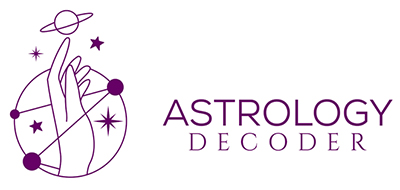Exploring the Origins: Where Did Astrology Originate?
Many people wonder, where does astrology come from? Astrology originated in ancient Babylon around 2000 BC, combining the study of the heavens with mystical beliefs. The Babylonians and Egyptians developed their forms of astrology, with influences from India and China as well.
The ideas of Babylonian astrologers also spread to Greece and Rome, where astrology was taken seriously, even by emperors who employed astrologers. Early astrological texts were preserved and reintroduced into Europe during the Middle Ages.
Astrology gained popularity in Europe during the Renaissance and Enlightenment periods but lost its academic standing when it was challenged by scientific concepts in astronomy. However, astrology experienced a resurgence in the 20th century through the influence of mass media. Astrology is the study of celestial objects to understand human behavior and predict events.
It has been practiced by various cultures throughout history, and today, Western astrology is commonly associated with horoscopes and personality predictions. However, astrology is considered a pseudoscience and has been successfully challenged on theoretical and experimental grounds.
Despite this, belief in astrology continues in many cultures, including India.
Key Takeaways:
- Astrology originated in ancient Babylon around 2000 BC, combining the study of the heavens with mystical beliefs.
- The Babylonians and Egyptians developed their forms of astrology, with influences from India and China as well.
- Astrology gained popularity in Europe during the Renaissance and Enlightenment periods but lost its academic standing when it was challenged by scientific concepts in astronomy.
- Astrology experienced a resurgence in the 20th century through the influence of mass media.
- Astrology is considered a pseudoscience and has been successfully challenged on theoretical and experimental grounds.
- Despite this, belief in astrology continues in many cultures, including India.
Early Development and Influence
The ideas of Babylonian astrologers spread to Greece and Rome, where astrology was taken seriously, even by emperors who employed astrologers. The early astrological texts were preserved and reintroduced into Europe during the Middle Ages, where they were used by scholars to make predictions about future events.
During the Renaissance and Enlightenment periods, astrology gained popularity in Europe. Many scientists and philosophers of the time believed in the power of astrology, including Sir Isaac Newton, who wrote extensively on the subject. However, astrology lost its academic standing when it was challenged by scientific concepts in astronomy.
Despite this setback, astrology experienced a resurgence in the 20th century through the influence of mass media. Today, Western astrology is commonly associated with horoscopes and personality predictions.
Astrology is the study of celestial objects to understand human behavior and predict events. It has been practiced by various cultures throughout history, with the Babylonians and Egyptians developing their forms of astrology, with influences from India and China as well.
While astrology is considered a pseudoscience and has been successfully challenged on theoretical and experimental grounds, belief in astrology continues in many cultures, including India.
Related reading: Who First Believed in Astrology
Renaissance and Enlightenment Periods
Astrology gained popularity in Europe during the Renaissance and Enlightenment periods, as the ancient texts were reintroduced and translated. It was taken seriously, even by emperors who employed astrologers to help them make decisions and predict outcomes. However, with the rise of scientific concepts, especially in astronomy, astrology lost its academic standing and was challenged by skeptics and critics.
Nonetheless, astrology experienced a resurgence in the 20th century through the influence of mass media. Today, Western astrology is commonly associated with horoscopes and personality predictions. However, it is important to note that astrology is considered a pseudoscience and has been successfully challenged on theoretical and experimental grounds. Despite this, belief in astrology continues in many cultures around the world, including India, where it has been practiced for centuries.
Astrology and Popular Culture
However, astrology’s ancient roots would not remain buried forever. It experienced a resurgence in the 20th century through the influence of mass media, most notably in the form of newspapers and magazines featuring astrological forecasts and personality analyses for each zodiac sign. This mass distribution of astrological content led to a widespread fascination with astrology.
As the digital age emerged, astrology found a new home on the internet, where online horoscopes and astrological communities thrive to this day. Social media platforms like Twitter and Instagram have popularized the use of astrological memes, allowing astrology to reach even more people and become a part of popular culture.
Related reading: Birth of Astrology
Despite astrology being considered a pseudoscience and having lost its academic standing, it remains a topic of interest and discussion among many individuals. Whether seen as a way to interpret the cosmos, explain personality traits, or make sense of the world around us, belief in astrology continues to persist in many cultures, including India.
What is Astrology?
Astrology is the study of celestial objects to understand human behavior and predict events. It originated in ancient Babylon around 2000 BC and combined the study of the heavens with mystical beliefs. The Babylonians and Egyptians developed their forms of astrology, with influences from India and China as well. The ideas of Babylonian astrologers also spread to Greece and Rome, where astrology was taken seriously, even by emperors who employed astrologers.
Early astrological texts were preserved and reintroduced into Europe during the Middle Ages. Astrology gained popularity in Europe during the Renaissance and Enlightenment periods but lost its academic standing when it was challenged by scientific concepts in astronomy.
Today, Western astrology is commonly associated with horoscopes and personality predictions. However, astrology is considered a pseudoscience and has been successfully challenged on theoretical and experimental grounds. Despite this, belief in astrology continues in many cultures, including India.
Global Belief in Astrology
Despite astrology being challenged as a pseudoscience and losing its academic standing, belief in astrology continues to persist in many cultures around the world. One such culture is India, where astrology has been intertwined with daily life for centuries.
Indian astrology, known as Vedic astrology, is a complex system that takes into account the position of the moon, planets, and other celestial bodies at a person’s birth. It is believed that these positions have a profound impact on a person’s personality, relationships, and even their destiny.
Astrologers in India are highly respected and sought after for their advice on everything from marriage and career decisions to health and financial matters. Many people also consult astrologers for auspicious dates and times for important events such as weddings, business ventures, and even surgeries.
Related reading: Number 37 Meaning Bible
Despite the criticism and challenges faced by astrology, it remains deeply rooted in many cultures around the world, including India. For many people, astrology provides comfort, guidance, and a sense of connection to something greater than themselves.
Astrology and Academic Standing
Astrology lost its academic standing when it was challenged by scientific concepts in astronomy. Despite the popularity it gained during the Renaissance and Enlightenment periods in Europe, astrology faced heavy criticism from scholars who believed the predictions it made were baseless and had no scientific basis. The advancements made in astronomy and physics exposed astrology’s flaws, and it was consequently dismissed by academia.
Astrology and Popular Culture
Astrology experienced a resurgence in the 20th century through the influence of mass media. Today, astrology is a common feature of popular culture, with many newspapers and websites regularly publishing horoscopes. Astrology has become an entertainment industry, with many people reading their horoscopes for fun and curiosity.
Astrology has also made its way into movies, TV shows, and music. Many songs and films reference astrological signs and their supposed personality traits. Some TV shows even feature characters who are astrologers, making astrology a part of the storyline.
The rise of social media also helped astrology reach a wider audience. Astrology memes and posts are popular on platforms like Instagram and Twitter, with users liking and sharing them widely.
Despite being considered a pseudoscience, astrology remains a fascinating subject for many people. Its presence in popular culture is a testament to its enduring appeal, even as it continues to be challenged by scientific concepts.
Criticisms and Challenges
Astrology is considered a pseudoscience and has been successfully challenged on theoretical and experimental grounds. Critics argue that there is no scientific evidence to support the claims made by astrologers. The lack of scientific rigor in astrology is seen as a major weakness, as it owes its basis to outdated beliefs and superstitions that have no empirical basis.
Another criticism of astrology is that the predictions made by astrologers are often vague and subjective, and therefore difficult to verify. Astrology fails to take into account the complexity of human nature and the multitude of factors that influence our behavior and decisions.
Furthermore, astrology has been criticized for perpetuating harmful stereotypes and reinforcing gender, racial, and class-based biases. Critics argue that astrological predictions can be used to justify discrimination and prejudice against certain groups of people.
Despite these criticisms, many people continue to place their faith in astrology. Believers argue that astrology provides comfort and guidance in uncertain times, and helps them make sense of their place in the world. Ultimately, the validity of astrology remains a matter of personal belief, and each individual must decide for themselves whether or not to place their trust in its teachings.
Conclusion
In conclusion, astrology is an ancient practice that originated in Babylon around 2000 BC and developed over time with influences from various cultures, including India and China. The Babylonians and Egyptians developed their forms of astrology, and the ideas of Babylonian astrologers also spread to Greece and Rome, where astrology was taken seriously, even by emperors who employed astrologers. Early astrological texts were preserved and reintroduced into Europe during the Middle Ages.
Astrology gained popularity in Europe during the Renaissance and Enlightenment periods but lost its academic standing when it was challenged by scientific concepts in astronomy. However, astrology experienced a resurgence in the 20th century through the influence of mass media. Today, Western astrology is commonly associated with horoscopes and personality predictions. However, astrology is considered a pseudoscience and has been successfully challenged on theoretical and experimental grounds.
Belief in Astrology
Despite astrology being challenged, belief in astrology continues in many cultures around the world, including India. Whether or not one believes in astrology, its historical and cultural significance cannot be denied. Astrology has been practiced by various cultures throughout history, and it continues to hold a place in popular culture despite its academic standing as a pseudoscience.
FAQ
Where did astrology originate?
How did astrology spread to other cultures?
When did astrology gain popularity in Europe?
How did astrology experience a resurgence in the 20th century?
What is astrology?
Where does belief in astrology continue?
What happened to astrology’s academic standing?
How did astrology become popular in mass media?
What are some criticisms of astrology?
Sources
- https://en.wikipedia.org/wiki/History_of_astrology
- https://familytreemagazine.com/history/history-matters-astrology/
- https://en.wikipedia.org/wiki/Astrology

Dorthe D.:
🌍 Origin: Denmark ✈️ Globetrotter since the late ’90s 📚 Passionate about Astrology, Spirituality, Words of wisdom, Dream interpretation, and the Law of Attraction.
Welcome to my journey of exploration and inspiration! 🌟

